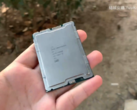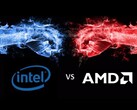With the acquisition of Israeli foundry Tower Semiconductor, Intel is expanding its production capacity to help meet the unprecedented semiconductor demand spurred by the chip shortages plaguing the past few years. Intel entered a definitive agreement to buy Tower for US$53 per share amounting to approximately US$5.4 billion in total enterprise value. This is an important step in advancing Intel’s IDM 2.0 strategy that aims at providing production capacity for companies all across the world through the Intel Foundry Services initiative.
“Tower’s specialty technology portfolio, geographic reach, deep customer relationships and services-first operations will help scale Intel’s foundry services and advance our goal of becoming a major provider of foundry capacity globally,” explained Pat Gelsinger, Intel CEO. The Tower acquisition will also help Intel increase its reach in the automotive connectivity and information security markets, as the Israeli company that is currently ranked ninth among worldwide pure-play foundries mainly specializes in radio frequency (RF) chips, power / silicon-germanium (SiGe) / industrial sensors, and electronic design automation (EDA).
This move clearly signals that Intel believes Israel could become the next major semiconductor hub that may help reduce the reliance on the Taiwanese foundries and eventually help match TSMC’s capacity, as pointed out by the president of DigiTimes Asia, Colley Hwang. Intel already acquired Israeli automotive and IoV (Internet of Vehicles) company Mobileye and has had a strong R&D division in Israel since its early beginnings.
The acquisition is expected to be finalized in approximately 12 months. It has been unanimously approved by Intel’s and Tower’s boards of directors, yet it still needs green lights from the U.S. and Israeli governments.















